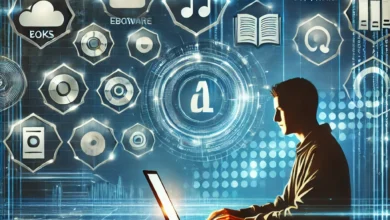Discog Define: Music Cataloging and Its Digital Evolution

In today’s digital age, the music industry has transformed significantly. From vinyl records to streaming platforms, the way we collect, store, and share music has drastically evolved. One of the most important aspects of this transformation is the ability to catalog music in an organized way. That’s where the term discog define becomes crucial. This phrase is a shorthand way to explore the definition and function of discographies — organized collections of sound recordings by artists or record labels.
In this article, we’ll thoroughly explain what discog means, the importance of discographies in the music world, how digital platforms like Discogs have changed the game, and why understanding “discog define” matters more than ever. Whether you’re a collector, a music historian, or a casual fan, this guide will help you understand the significance and structure behind the music you love.
Discog Define — Understanding the Basics of a Discography
When you search discog define, you’re essentially looking to understand what a “discog” or discography is. A discography is a complete, organized listing of sound recordings — albums, singles, EPs, compilations — typically by an artist, a band, or even a record label. It serves as a reference tool and historical archive.
The term “discography” is derived from two words: “disc,” referring to sound recordings (vinyl, CD, etc.), and “graphy,” meaning a written or systematic presentation. When we use “discog define” in modern contexts, especially online, it’s often referring to this system of cataloging in digital form.
There are various types of discographies:
- Artist Discography: Lists all works by a specific artist, from debut to the most recent release.
- Label Discography: Focuses on releases under a particular record label.
- Genre Discography: Compiles music of a specific genre, such as jazz or punk.
- Collector’s Discography: Curated for collectors with rare or limited-edition releases.
Each of these discographies serves a different purpose but contributes to the same goal — preserving and organizing music history.
The Importance of Digital Platforms in Discog Define
With the advancement of the internet, cataloging music has moved from print books and personal logs to online databases. If you’re looking for the most practical example of “discog define,” you’ll likely be directed to Discogs — a user-generated online music database and marketplace.
Discogs is short for “discographies” and was launched in 2000. It allows users to create, edit, and maintain music release data in a collaborative, Wikipedia-like fashion. As of today, it houses millions of releases, artists, and labels. Here’s how Discogs plays into discog define:
Key Features of Discogs:
- Massive Database: Includes vinyl, CDs, cassettes, digital files, and more.
- Community Contributions: Any user can add or edit entries.
- Marketplace Function: Users can buy and sell music globally.
- Advanced Filters: Search by artist, genre, year, format, etc.
- Collection and Wantlist Management: Track what you own and what you desire.
Digital platforms like Discogs have made it easier to access discographies in real-time, cross-reference releases, identify bootlegs, and learn about obscure records. For collectors and historians, this means verifying pressing variations, mastering information, and production credits — all key aspects of understanding music’s cultural and economic history.
So, when you see discog define used in an online query, it often relates to how such platforms define and structure music data in accessible, usable ways.
Evolution of Discographies from Print to Digital
Before digital discographies, music catalogs were published in books. These printed discographies were niche and often limited to genre-specific or artist-focused listings. Examples include:
- The Jazz Discography by Tom Lord.
- The Beatles Recording Sessions by Mark Lewisohn.
However, these publications had limitations:
- Outdated as soon as new releases occurred.
- Limited in scope and accessibility.
- Difficult for average listeners to contribute or verify.
The digital shift solved these problems:
- Real-time updates.
- User collaboration.
- Global access.
- More inclusive of formats and genres.
The digital era brought the real meaning of discog define to life, empowering fans and researchers alike to build upon a living, breathing catalog of sound history.
Types of Discographies Explained
Let’s break down the most common types of discographies to further enhance your understanding of discog define:
1. Chronological Discography
Lists releases by date of issue, allowing one to trace the artist’s growth over time.
2. Alphabetical Discography
Organized by title for quick reference, mostly useful for collectors and casual listeners.
3. Session Discography
Details the recording sessions behind albums — which musicians played, recording dates, and studios.
4. Comprehensive Discography
Includes all known information — release dates, versions, producers, engineers, catalog numbers, and formats.
Understanding these types helps clarify the deeper layers within “discog define.” For instance, jazz and classical collectors often rely on session discographies, while DJs prefer chronological and comprehensive ones.
How “Discog Define” Supports Music Preservation
Discographies are not just reference lists; they are cultural tools. Here’s how they support the preservation of music heritage:
- Archiving lost or out-of-print music.
- Documenting the evolution of sound and recording technology.
- Recording collaborative efforts in music production.
- Tracking trends in genre, format, and artwork design.
In the context of discog define, this preservation isn’t just passive documentation — it’s active curation. Users contribute missing information, upload scans of album covers, add label info, and more. This crowdsourced knowledge builds a shared musical history.
Benefits of Using a Digital Discography
Here’s how using digital discographies like Discogs enhances the user experience, especially within the scope of discog define:
- Easy Navigation: You can explore discographies by artist, label, format, and genre with a few clicks.
- Accurate Pricing: View market values based on actual sale data.
- Community Insights: Read and leave comments on specific releases.
- Mobile Access: Use discography tools on the go with apps.
- Global Connectivity: Find rare records from sellers worldwide.
Collectors, sellers, DJs, archivists, and fans benefit from these features by having organized, verified, and searchable catalogs.
Challenges in the World of Discog Define
Despite its many benefits, the world of discographies faces some challenges:
- Data Inconsistencies: Since user input drives many databases, inaccuracies can slip in.
- Overwhelming Detail: New users may find it hard to navigate the depth of information.
- Marketplace Fluctuations: Prices on platforms like Discogs may not always reflect true market value.
- Limited Inclusion: Underground, indie, or non-Western music may be underrepresented.
These challenges don’t diminish the value of discographies but emphasize the need for careful use and ongoing contributions. The “discog define” conversation must also include how to improve inclusivity and accuracy in these digital platforms.
How to Build Your Own Discography
For those wanting to make a personal or professional discography, here’s a step-by-step guide aligned with the principles behind discog define:
- Identify the Scope: Is it an artist, label, or genre?
- Choose a Platform: Use tools like Excel, Google Sheets, or Discogs.
- Gather Information: Include release titles, catalog numbers, formats, dates, and artwork.
- Organize Format: Choose chronological or alphabetical order based on your goals.
- Update Regularly: A discography is a living document.
- Back Up Your Data: Store your files on the cloud or external drives.
Creating your own discography allows for customization and deeper understanding of your collection or study area.
Future of Discog Define in the AI and Blockchain Era
As technology progresses, so does the concept of discog define. Here’s what the future might hold:
- AI Curation: Smart systems could automatically compile discographies using audio fingerprinting and metadata.
- Blockchain Authentication: Verifying rare pressings or limited editions could be secured through blockchain tech.
- Virtual Collections: VR and AR may allow users to browse discographies in 3D space.
- Metadata Enhancement: Improved tagging systems could offer hyper-detailed release data.
The continued growth of tech ensures that discography building will not only become more accurate but also more immersive and interactive.
Legal and Ethical Considerations in discog define
An often overlooked aspect of discog define involves navigating the legal and ethical landscape of music documentation. While cataloging music releases provides immense value, it must respect copyright laws and artist rights.
When discographies publish artwork images, tracklists, or liner notes, permissions or licenses may be required to avoid infringing copyright. Unauthorized use of cover art or audio samples can lead to legal challenges. Platforms hosting user-generated discography data must moderate content vigilantly to ensure compliance.
Ethically, discographers must prioritize accuracy and respect for artists’ wishes. This includes acknowledging all contributors such as producers, engineers, and featured artists, as well as handling sensitive or unreleased material with discretion. Maintaining transparency about sources and avoiding misinformation strengthens the integrity of discographies within the music community.
The Importance of discographies for Research and Scholarship
The practice of discog define is invaluable for academic research and musicology. Detailed discographies provide scholars with timelines, contextual information, and production details necessary to analyze trends, artist evolution, and genre development.
Discographies also enable studies into sociocultural impacts of music, documenting how social, political, and cultural factors influence artistic output. By tracking format changes and technological advances, researchers can explore the evolution of recording and distribution methods.
For students, researchers, and music historians, discographies act as primary source documents that support citation, cross-referencing, and data-driven analysis. The collaborative, continuously updated nature of platforms like Discogs broadens access to global music information, democratizing research.
The Collector’s Perspective in discog define
For collectors, discog define means much more than a simple list—it is a vital tool for identifying, authenticating, and valuing music releases. Discographies help collectors distinguish between pressing variants, limited editions, and rare releases that affect an item’s desirability and price.
Detailed data on catalog numbers, matrix codes, and release history allows collectors to verify the authenticity of a release and avoid counterfeit or bootleg copies. Discographies also document provenance, linking individual items to their owners or historical sales, which is crucial in the rare music marketplace.
By cataloging obscure and underground releases, discographies also help preserve music that might otherwise be lost, contributing to cultural heritage beyond mainstream commercial music.
Community and Crowdsourcing in discog define
One of the most powerful aspects of modern discog define is the role of community involvement. Platforms like Discogs rely on crowdsourced data, where users contribute new releases, correct errors, upload images, and share knowledge.
This collaborative approach vastly increases the accuracy and scope of discographies. Experienced users and moderators vet submissions, maintaining quality and resolving disputes. Community forums create a dynamic space for discussion about authenticity, market trends, and music history.
Such social interaction transforms discographies from static databases into living repositories of music culture, fostering a sense of belonging and shared purpose among music enthusiasts worldwide.
Economic Impact and Marketplace Integration
discog define also intersects with economics, especially when integrated with marketplaces. Discography platforms often provide real-time pricing data, showing average sale prices and trends for specific releases and variants.
This transparency helps buyers and sellers make informed decisions, supports price discovery, and influences collecting behavior. For example, rare pressings documented in discographies can command high prices, reflecting scarcity and demand.
However, this connection to commerce introduces challenges such as potential price inflation or shifting focus from artistic value to monetary worth. Understanding these economic dynamics is an essential dimension of the modern discog define process.
Technological Advances Shaping discog define
Technology continuously shapes how discographies are created and used. In the context of discog define, advancements like artificial intelligence, machine learning, and blockchain offer promising developments.
AI can automate the extraction of metadata, identify song versions, and flag inconsistencies, making cataloging faster and more accurate. Blockchain technology offers potential solutions for securing provenance and ownership of limited-edition releases, combating counterfeiting.
Mobile apps allow collectors and DJs instant access to discography data in real time, and voice-activated assistants may soon enable hands-free queries. Streaming platforms are beginning to incorporate discography information to enrich user experience with contextual data.
These technological trends herald a future where discographies are seamlessly integrated into everyday music interaction.
Cultural Significance and Legacy Preservation
At its core, discog define is about more than data—it preserves musical culture and legacy. Discographies document the creative output of artists, communities, and eras, acting as cultural maps that reflect social history, artistic innovation, and global exchange.
By cataloging music across all genres and regions, discographies help give visibility to marginalized or underrepresented artists, ensuring their contributions are recognized and remembered. They allow listeners to explore the richness and diversity of music traditions worldwide.
In this way, discographies are tools for storytelling, identity preservation, and cultural celebration, keeping alive the musical heritage that shapes our shared human experience.
Conclusion
The phrase discog define may seem like a simple search term, but it opens up a complex and fascinating world of music cataloging. From traditional printed discographies to modern digital platforms like Discogs, the methods of documenting music have evolved to meet the demands of collectors, researchers, and fans.
Understanding “discog define” helps appreciate how important it is to preserve music history and organize it in a meaningful way. Whether you’re browsing for fun, researching a band’s history, or managing a personal collection, discographies serve as essential tools in the digital music era.
So, the next time you hear a song that moves you, remember — someone, somewhere, has carefully cataloged it. That’s the power behind discog define.




